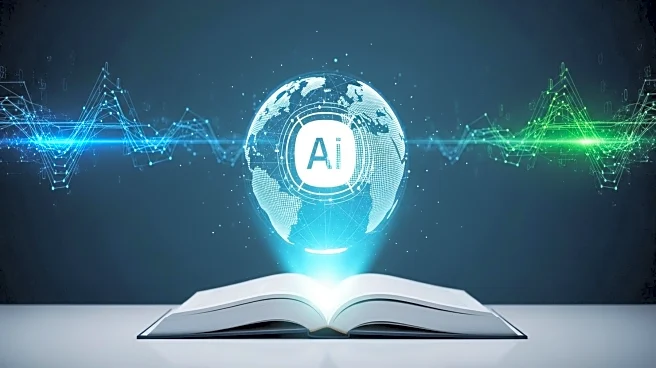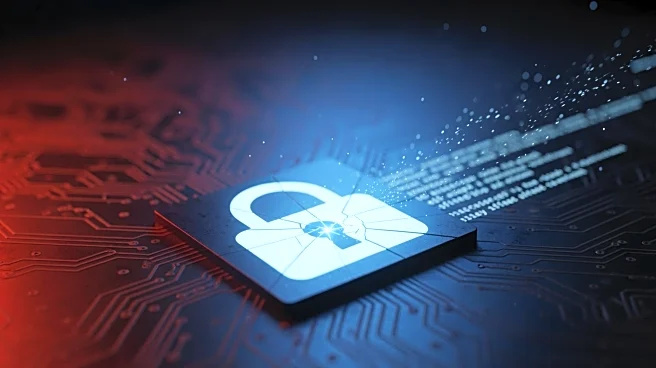What's Happening?
The integration of AI technologies in K-12 and higher education is becoming increasingly prevalent, with students and faculty widely adopting tools like ChatGPT. This shift has led to a transformation in educational practices, where AI is used for writing essays, completing problem sets, and generating curricula. The normalization of AI in schools has raised concerns about its impact on traditional learning methods and critical thinking skills. Educators are grappling with the challenge of balancing AI use with maintaining educational integrity, as the technology becomes a default tool for students. Discussions are emerging about redesigning educational practices to address the pedagogical debt accumulated over time, exacerbated by the rapid adoption of AI.
Why It's Important?
The widespread use of AI in education has significant implications for the future of learning and teaching. It raises questions about the erosion of critical thinking skills and the potential overreliance on technology for academic tasks. As AI becomes more integrated into educational systems, there is a growing need for governance policies to ensure its responsible use. The debate highlights the importance of developing practical, skills-based education to prepare students for real-world challenges. The shift towards AI-driven learning also reflects broader cultural changes, where productivity and efficiency are prioritized over deep learning and understanding.
What's Next?
Educational institutions may need to reconsider their approaches to teaching and learning, potentially incorporating more hands-on, practical experiences to counterbalance the effects of AI. There is a possibility of a 'slow-school' movement that emphasizes deliberate and meaningful learning experiences. As AI continues to evolve, schools and universities will likely face ongoing challenges in integrating technology while preserving educational values. Stakeholders, including educators, policymakers, and students, will need to engage in discussions about the role of AI in shaping the future of education.
Beyond the Headlines
The integration of AI in education reflects a broader cultural shift towards digitalization and automation. It raises ethical questions about the role of technology in shaping human behavior and learning processes. The debate over AI in schools is part of a larger conversation about the impact of technology on society and the need for responsible innovation. As AI becomes more embedded in daily life, there is a growing need to address its implications for privacy, security, and equity in education.









